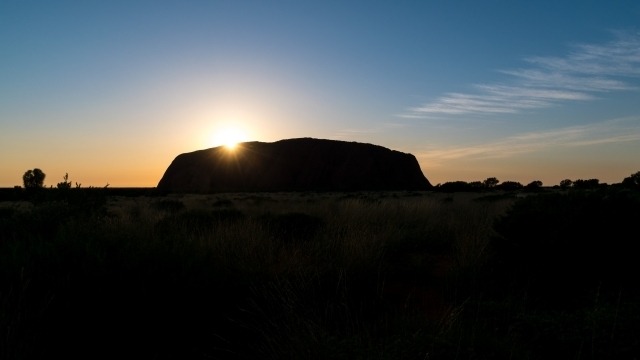Opinion: It is sameness that we should fear

By Mark Kenny
A version of this article was originally published by The Canberra Times.
Have no illusions, at the heart of the campaign to incite fear against the Voice is fear itself.
The tell-tale signs are manifest. Shrill claims. Disproportionate anger. Absurd equivalences. And self-interest.
Exhibit A is Australia's least authoritative prime minister. Having debauched Westminster conventions, Scott "multiple ministries" Morrison piped up on Wednesday to defend sacred governing norms. True story!
Peter Dutton let fly against the "divisive, disrupting and democracy-altering Canberra-based Voice", declaring it will "re-racialise Australia". This, about a mere advisory body which would be wholly designed by Parliament.
He goes further: "It will have an Orwellian effect where all Australians are equal, but some Australians are more equal than others." How so?
Unsheathed, Dutton's sword-play casts his denial of the 2008 Apology as a mere dress rehearsal for the populism with which he now vests his party.
"... instead of being 'one', we will be divided, in spirit, and in law."
It must be unnerving holding at arm's length both your country's history and its future.
Just months ago, Dutton couldn't tell you what was in his own mind regarding the Voice. Now, it is wrong in principle and he knows the mind of the entire nation years into the future.
If this looks like malice aforethought it is because Dutton knows what he is doing.
On social media, anti-Voice hyperbole now moves as a bulk commodity - shiploads of it unload daily, most of it trafficked by weak men feeling threatened. Weak men whose first resort is always to their own shouty voices.
That these fear-mongers are themselves fearful is almost understandable. It must be unnerving holding at arm's length both your country's history and its future.
Safer then, to swim in the sewer-pipe of Elon Musk's Twitter.
On the few occasions these "fright-wingers" make an argument rather than attack the person, it is mostly to debase terms they have completely failed to grasp.
"Sorry, can't support racism in any form. #VoteNo," tweets one piously. "I cannot support the mechanism of slavery," ups another. One respondent decreed: "Being a good citizen means saying no to racism and apartheid." Or my favourite: "Safety first vote no for a better future." Precisely whose "better future" was left unspecified.
Fake principles, faux dangers. Black South Africans must be aghast at this flippant ahistorical appropriation. Segregated, incarcerated, tortured, and killed. That was Apartheid, whereas recognising prior custodianship and creating a non-binding body to make representations is its opposite.
It was not right-wing cowardice that defeated Apartheid, but moral clarity and fierce purpose. It came from Nelson Mandela, Steve and Ntsiki Biko, and countless others. And, it came from sport.
A crucial element was sporting bans which denied the white supremacist government in Pretoria the propaganda value of participating internationally in cricket, rugby, athletics, and many other codes.
That's right, sport. Remember this when you hear opposition frontbenchers from Dutton to Michaelia Cash lecturing the AFL, Netball Australia, the ARU and NRL to stay out of politics.
Australia under Liberals and Labor pressed hard to enforce the 1977 Gleneagles Agreement which itself strengthened actions already being led by athletes and sporting bodies.
As public support for the Voice softens, it is worth considering who gains politically if it fails and what that says about their real motivations.
This might be a major moment for national redemption, but Dutton views it as his narrow path to power.
While some Liberals moderates have pushed back, others cower, putting party and career before country and principle. Irrespective of what they say privately, this is not moral leadership.
More important than the fate of such careers or for that matter, the entire Albanese government, is the wellbeing of Aboriginal and Torres Strait Islander Australians - as a cohort and as individuals. These community members face excruciating personal pressure. They have stepped forward and made a request to a nation of which they have previously asked little. It was an act of civility and undue reserve. For years now, they have stood uncomfortably in the national spotlight, their very character as Australians judged, their integrity, parsed and prodded. Their motives impugned.
Australia is the only first-world nation with a colonial history that doesn't recognise its original inhabitants in its constitution.
Six years ago last Friday, following an exhaustive consultative process, Aboriginal leaders proposed a way forward for a nation divided by its unreconciled record.
They asked Australians to officially recognise their prior existence and to allow their perspective to be heard when designing laws and programs affecting them. Their case is fundamentally reasonable.
Where is the threat?
Is Australia really so shallow as to buy this moronic Apartheid canard, this "re-racialising" malarkey? And so frightened of the future that it huddles behind a dishonourable settler myth? Have our views on race, justice, inclusion and diversity not evolved since the constitution was written way back in the 1890s? Do we lack the grace to choose empathy over envy, love over hate? What happened to the fair go and the world's social laboratory? Or is modern Australia really just a "young fogey" to borrow Paul Keating's old description of the monarchist Tony Abbott?
It is not change we should be terrified by, but continued rates of illiteracy, illness and premature death, incarceration, poverty and abuse.
First Australians know well about the two Australias. Embracing the Voice might just help us become one happier one.
Mark Kenny is a professor at the ANU Australian Studies Institute and host of the Democracy Sausage podcast.








